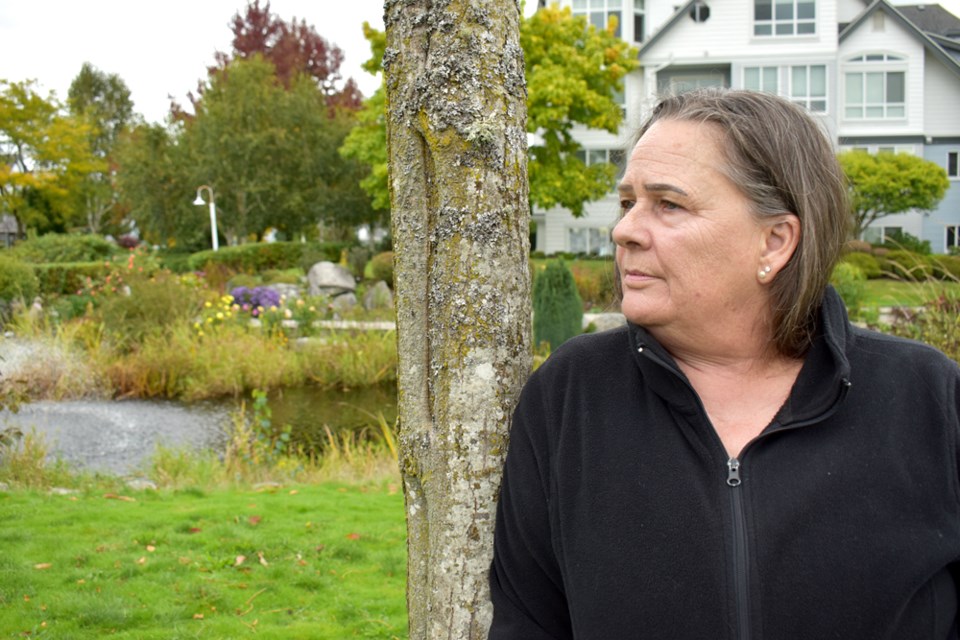Liz Griffith would like to know her adult son’s mental health diagnosis.
For more than four years, she’s been taking him to appointments, to the hospital and fighting to get him help for his mental-health problems.
But, because he’s an adult, she has never been told what his diagnosis is.
The first time her son ended up in the hospital in 2017 — after police came to their home and took him — she felt some temporary relief.
“At least, he’ll get help now,” was her first reaction, but this was short-lived as her son started to cycle through the system.
This included several stays in the hospital and multiple psychiatrists over four years.
The best care he’s received has been at the emergency mental-health unit at Richmond Hospital, Griffith said, which is a calm environment for him.
But the amount of time patients spend there is limited as it’s an emergency facility.
While Griffith acknowledges her son is an adult, she doesn’t understand why she, as his primary support, can’t know more about his mental-health condition.
While he was in a state of psychosis, the health-care team asked him for permission to allow Griffith to see his medical records, but he refused.
Griffith said the inconsistency of care is the most frustrating part of his treatment.
The appointments are just between 10 and 30 minutes and are weeks apart, and consist of questions like “how are you feeling today?”
At times, he’s been connected with good support workers, but with staff changes, this often doesn’t last a long time.
What he needs, Griffith said, is counselling with a well-trained professional psychologist — she would be willing to pay for part of it, but the cost can be $200 or more an hour and that is prohibitive for her.
Griffith has tried to explain the intensity of her son’s problems to mental-health workers, but feels she is either brushed off, disbelieved or labelled a “crazy mother.”
“It’s like smashing my head against the wall for years — there’s no end to it,” Griffith said.
After several years of supporting him and having him live with her, her son, in his mid-30s, finally got an apartment at Storey’s, a supportive home which is run by five different non-profit agencies.
But having lived with him during his worst times — seeing him not take his medicines and just play video games to fill his time — Griffith thinks she could help guide his treatment.
While decades ago, mental-health patients weren’t afforded a lot of privacy rights — with doctors often speaking directly to the family without their permission — the pendulum has swung in the opposite direction to protect patient privacy.
But some say it has swung too far and can cut family out of the circle of care.
Anyone over the age of 19 is considered an adult in the mental-health system and has the right to have their medical information kept private.
But it’s also been shown that family involvement can help people accessing mental-health and addictions services.
A study by the Family Mental Health Alliance pointed out there are many benefits from having families involved in their care.
This includes decreased rates of hospitalization, better adherence to treatment, better recovery rates, less involvement in the courts and savings to mental health and addictions systems.
While VCH can’t talk about individual cases because of patient privacy, they stated they have resources available for all Richmond residents and stressed the importance of reaching out to loved ones if it seems they are struggling with their mental health.
There is one central Richmond number for all mental health and substance use services and programs — 604-204-1111.
There are also crisis lines (see below) that people with mental-health issues can call.
Mental-health resources
VCH Richmond Mental Health and Substance Use Services/Programs (all ages): 604-204-1111.
Low- and no-cost mental health support: www.gov.bc/covid19mentalhealthsupports
Suicide crisis line: 1-800 SUICIDE (784-2433)
Kuu-us Indigenous crisis line: 1-800-588-8717
The Anne Vogel Clinic (run by VCH), 7671 Alderbridge Way, provides walk-in support for those living with opioid use disorder.
Provincial resources: Wellbeing.gov.bc.ca



